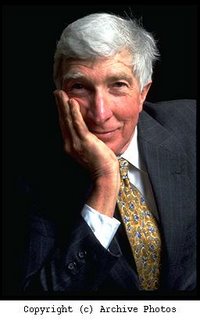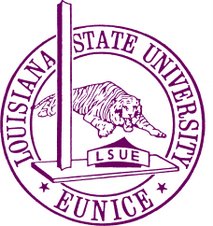
 English 1002 begins the semester reading and writing about John Updike. (That's John smiling lovingly in the pictures, the one on the left "fer real," the other obviously a cariciature (Ooh, cariciature--that's a vocabulary word! Who knows what that means?)
English 1002 begins the semester reading and writing about John Updike. (That's John smiling lovingly in the pictures, the one on the left "fer real," the other obviously a cariciature (Ooh, cariciature--that's a vocabulary word! Who knows what that means?)Students in the class will have the opportunity to discuss Updike and the representative short story "A&P" in the course's Blackboard discussion board, but that's a closed forum. This blog is an open forum! In other words, anybody in the world--not just students in English 1002 class-- can post a comment, or reply to someone else's comment--right here!
So let's see what happens! Whoever you are-- 1002 student, literary critic, common Joe/Jane on the street--Have you read Updike? Whatcha think of Updike? And if that doesn't interest you, whatcha think of life? the meaning of life? The English 1002 class you're in now, or a second semester comp. class you took a long time ago?
Post one, post all! Join the Updike free-for-all!





